Politics
An icon with an image of Stalin in the Tbilisi Cathedral was covered with paint
An icon of St. Matrona of Moscow, which also depicts Soviet commander-in-chief Joseph Stalin, was placed in Tbilisi’s Holy Trinity Cathedral. The icon was placed a few months ago, but on the eve of the Nativity of Christ in the old style, it was moved to a more central place, where it attracts the attention of visitors. Georgian historian Giorgi Kandelaki posted photos of the icon on his Facebook page with the words: “Icon of Joseph Stalin, the initiator of the destruction of Georgia’s independence, the murderer of thousands of clergy and the creator of the Soviet totalitarian system, in the Holy Trinity Cathedral.” Another success for the Russian information war machine.”
His publication found a strong public response and the patriarchate had to comment on the case. The head of the press office of the patriarchate, Fr. Andrija Jagmaidze confirmed in a conversation with the Georgian publication CNews that Stalin is indeed depicted on one of the icons in the cathedral, but reminded that the icons sometimes have images of people who insulted or persecuted the Church. He gave as an example the persecutor of Christians Diocletian, who is depicted on the icon “St. George advises Diocletian”. According to the representative of the patriarchate, it is not the icon itself that is a provocation to the feelings of the faithful, but the drawing of attention to it on the eve of the holiday.
However, his words did not convince the outraged people, who rightly note that on this icon Stalin is not represented as a torturer, as is the case with the icon of St. George, but as a meek Christian standing humbly next to a saint. She wants to legitimize the myth of Stalin’s secret Christianity, which is particularly popular among supporters of the Soviet regime.
On January 10, the icon was covered with blue paint. Civil activist Nata Peradze published footage of the painted icon. This is the reason why dozens of supporters of one of the far-right Georgian movements with a pro-Putin orientation surrounded her home and attempted to lynch her, “finishing what the state does not do.” The police did not allow suicide. As RFE/RL’s Georgian Service reported, an angry mob swarmed the house of Georgian activist Nata Peradze on January 10 after she posted a video online showing blue paint splattered on an icon of St. Matrona of Moscow in Tbilisi’s Holy Trinity Cathedral that had recently sparked controversy because it carries an image of the Soviet dictator Josef Stalin. It was initially unclear whether Peradze had defaced the icon, but as activists of the pro-Russia Alt-Info group gathered outside her home and loudly accused her of “insulting the icon,” she admitted she threw the paint.
Georgia’s Institute for the Study of the Soviet Past has called for the icon to be removed from the central Georgian temple. They remind that the icon was placed in the temple on the eve of the 103rd anniversary of the Soviet occupation of Georgia, “which began precisely on the initiative of Joseph Stalin”, and is “an insult to the memory of the victims of Soviet Russian totalitarianism”: “During Joseph Stalin’s rule in Georgia saw the execution of hundreds of clergy, most of them pastors and parishioners of the Georgian Orthodox Church, especially during the anti-Soviet uprising of 1924 and then during the Stalinist terror of 1937-1938. during Stalin’s rule, some 80,000 clergy and up to one million citizens were executed simply for their religious beliefs,” the organization said in a statement.
However, after the paint splatter incident, the icon was cleaned and placed in an even more central location in the temple, and media access to the temple was temporarily banned “without permission”.
Meanwhile, it is clear that the icon was donated to the church in Tbilisi by the leaders of the pro-Russian Alliance of Patriots party Irma Inashvili and David Tarkhan-Muravi. It aims to revive the cult of Stalin on church grounds, so that he is presented as a patron of the church and not as a persecutor. This goal is clearly recognized by the faithful who react sharply to this provocation, especially since in the recent church history of Georgia, its most popular contemporary saint Gabriel (Urgebadze) is known for his act of protest when during the Holy Week of 1965. publicly burns a portrait of Lenin with the words: “The Lord says: Do not make for yourself an idol or any image of that which is in heaven above, that is on the earth below, and that is in the water under the earth; do not bow down to them and do not serve them.’ Lenin’s portrait was carried at a demonstration on the eve of Easter, and neither the saint nor his contemporaries could have guessed that the time would come when the images of the persecutors of the Church of Christ would occupy a place of honor in the temple.
Politics
Elias Castillo: A Stalwart of Latin American Legislative Leadership
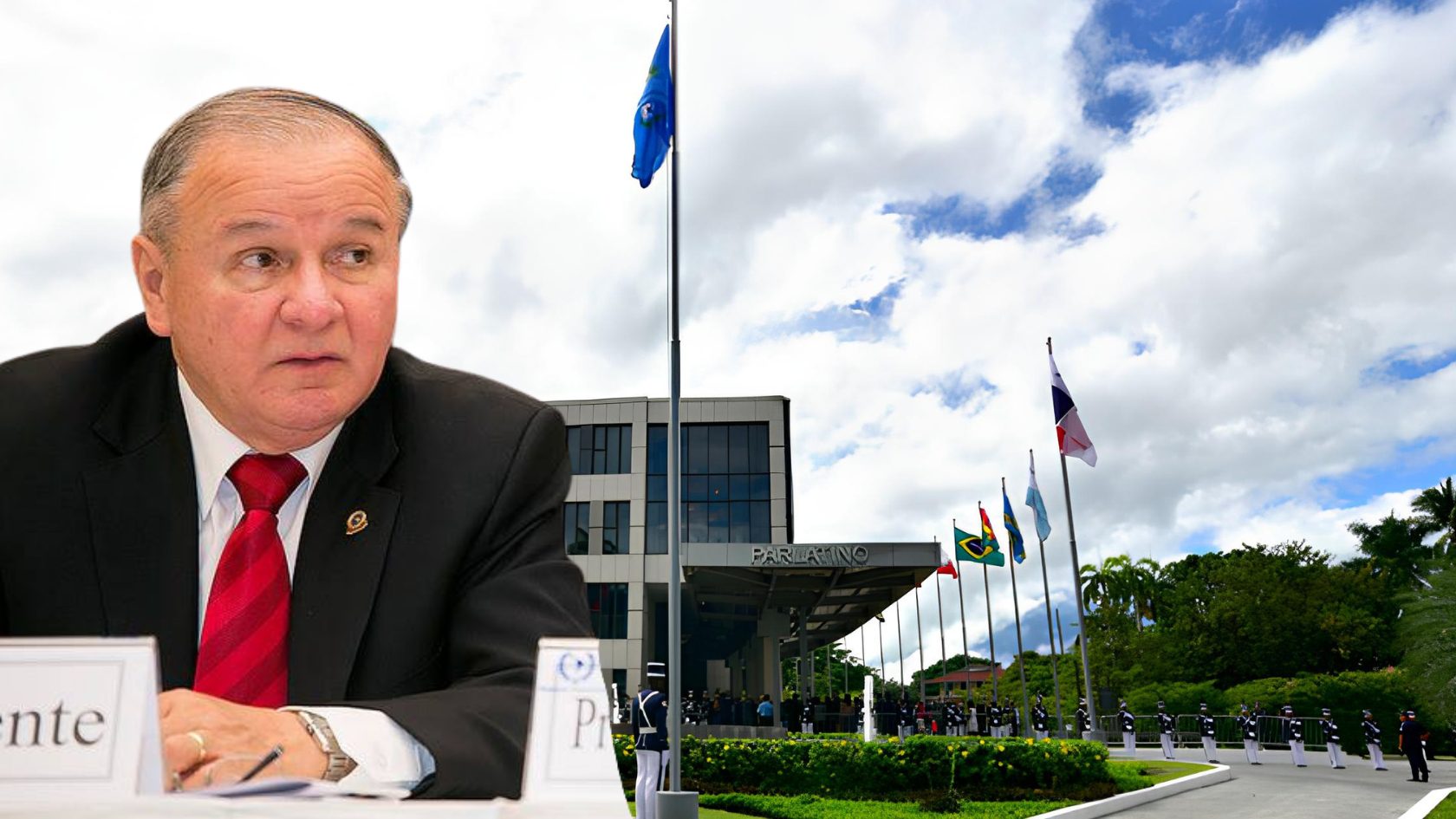
Latin America has always been known for its political landscape and intricate legal systems and few leaders represent the ideals of collaboration and legislative proficiency as well as Elias Ariel Castillo González. With more than thirty-five years dedicated to politics, Castillo is widely recognized for his commitment, honesty and strong leadership qualities. His present position, as the Executive Secretary of the Latin American Parliament (Parlatino) signifies a moment in a career shaped by a steadfast dedication to serving the public. The closest big event supported by Castillo, which will take place in September, aims to united civil society, politics, parliamentarians, academia and media, to join efforts in protecting and advancing freedom of religion or belief.
A Storied Career
Elias Castillo’s journey in politics began in Panama, where he quickly ascended the ranks due to his sharp intellect, strategic acumen, and deep connection with the people. His tenure in the National Assembly of Panama is particularly noteworthy, with him being elected as its president on three separate occasions. Such a record is a testament to his leadership skills and the trust he garnered from his peers.
The prestige of his career in Panama naturally extended to the broader Latin American arena. Castillo has been a dedicated member of the Latin American and Caribbean Parliament (Parlatino) for several terms. He served as president of Parlatino three times—a rare achievement that highlights his influence and effectiveness in fostering legislative dialogue and cooperation across national borders.
Leadership in Parlatino
As the Executive Secretary of the Latin American Parliament, Castillo’s role is multifaceted. It involves not only steering the legislative agenda but also ensuring that the diverse interests of member states are represented and reconciled. Under his stewardship, Parlatino has undertaken significant initiatives aimed at enhancing regional integration, promoting democratic governance, and addressing pressing issues such as climate change, human rights, and economic disparity.
Castillo’s leadership is marked by an inclusive approach. He strives to bring together legislators from different political, social, and economic backgrounds, fostering a collaborative environment where comprehensive and sustainable policies can be crafted. His vision extends beyond immediate legislative concerns to encompass long-term regional stability and prosperity.
A Visionary for the Future
One of Castillo’s most commendable traits is his forward-looking vision. He understands that the challenges facing Latin America—be they economic, environmental, or social—require innovative and collaborative approaches. He has been a vocal advocate for leveraging technology in governance, improving transparency, and enhancing public participation in legislative processes.
Elias Castillo’s work also reflects a deep commitment to social justice. He has consistently championed the rights of marginalized communities, advocating for policies that promote equality and inclusivity. His efforts in this regard are not confined to rhetoric but are evident in the tangible legislative measures he supports and the initiatives Parlatino has undertaken under his guidance.
Elias Castillo stands out as a paragon of legislative excellence in Latin America. His extensive career, marked by significant accomplishments both in Panama and on the regional stage, highlights the vital role of dedicated and visionary leadership in shaping the future of the region. As Executive Secretary of the Latin American Parliament, Castillo continues to lead with integrity, fostering a spirit of cooperation and championing the causes of democracy and development.
In the ever-evolving political landscape of Latin America, Elias Castillo remains a steadfast figure, piecing together the diverse and intricate mosaic of regional governance with unyielding dedication and unparalleled expertise.
Politics
Venezuela’s Electoral Process Marred by Repression and Lack of Transparency
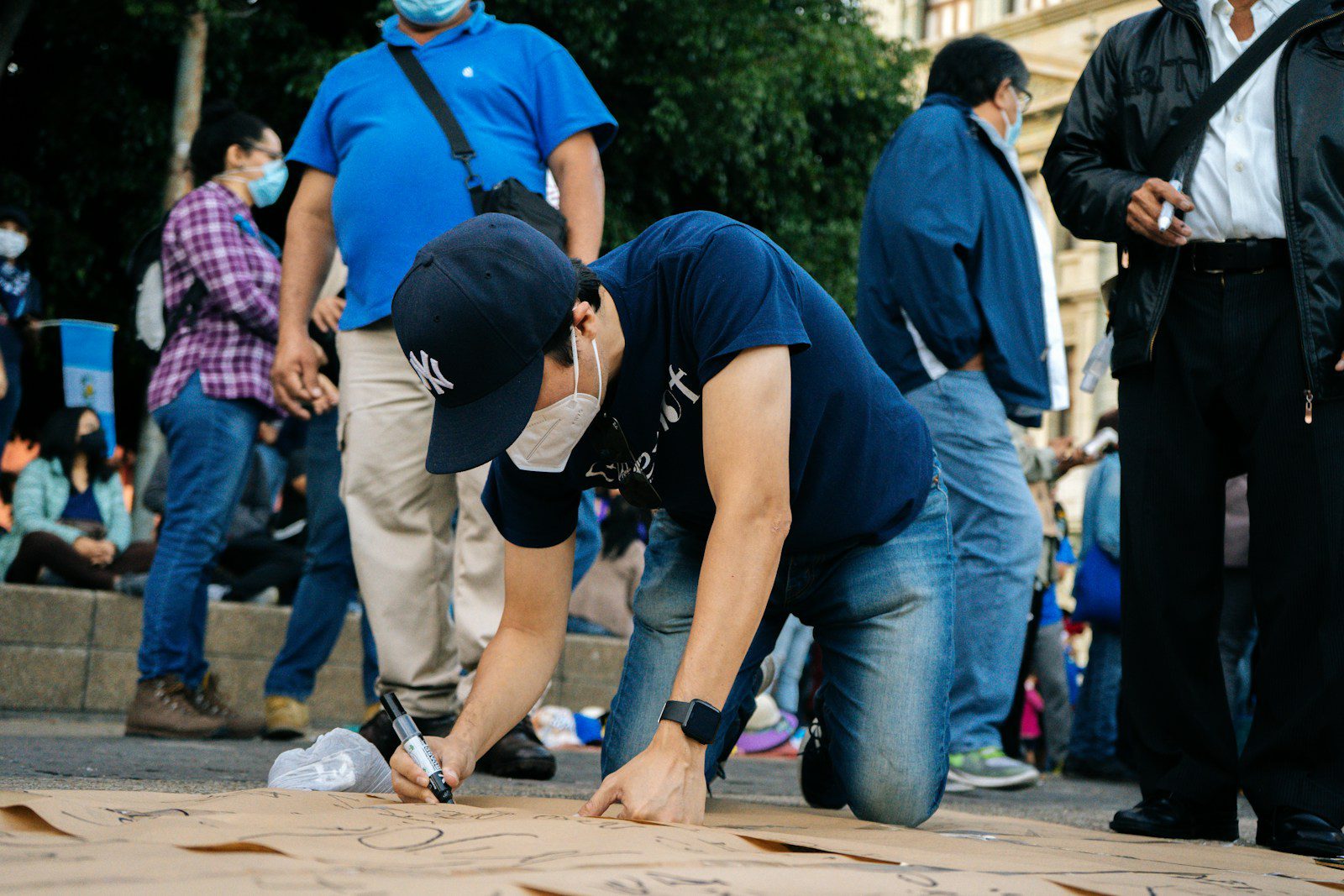
The Office of the Secretary General of the Organization of American States (OAS) has received a report from the Department of Electoral Cooperation and Observation regarding the presidential electoral process in Venezuela in 2024. The report highlights the worst form of repression, where the people are prevented from finding solutions through elections.
The Venezuelan regime has been accused of applying its repressive scheme to distort the electoral result, making it available to manipulation. The Maduro regime has mocked important actors of the international community, going into an electoral process without guarantees or mechanisms to enforce those guarantees.
The report notes that the complete manual for fraudulent handling of the electoral result was applied in Venezuela on the night of the election, in many cases in a very rudimentary manner. There has been talk of an audit or a recount of the minutes of electoral material, but this has not had the slightest conditions of security and control.
The opposition campaign headquarters has presented the minutes by which it would have won the election, but Maduro, including the CNE, has not yet been able to present the minutes by which it would have won. The Secretary General of the OAS, Luis Almagro, has expressed regret over the lack of cumulative memory of actors in the international community, which systematically leads to repeating errors.
The burden of injustice on the people of Venezuela continues, with Venezuelans once again victims of repression. The Secretary General has stated that “no revolution” can leave people with fewer rights than they had, poorer in values and principles, more unequal in the instances of justice and representation, more discriminated against depending on where their thinking or political direction lies.
Politics
OAS Report Shakes Venezuelan Election Results: Trust in Democracy Eroded
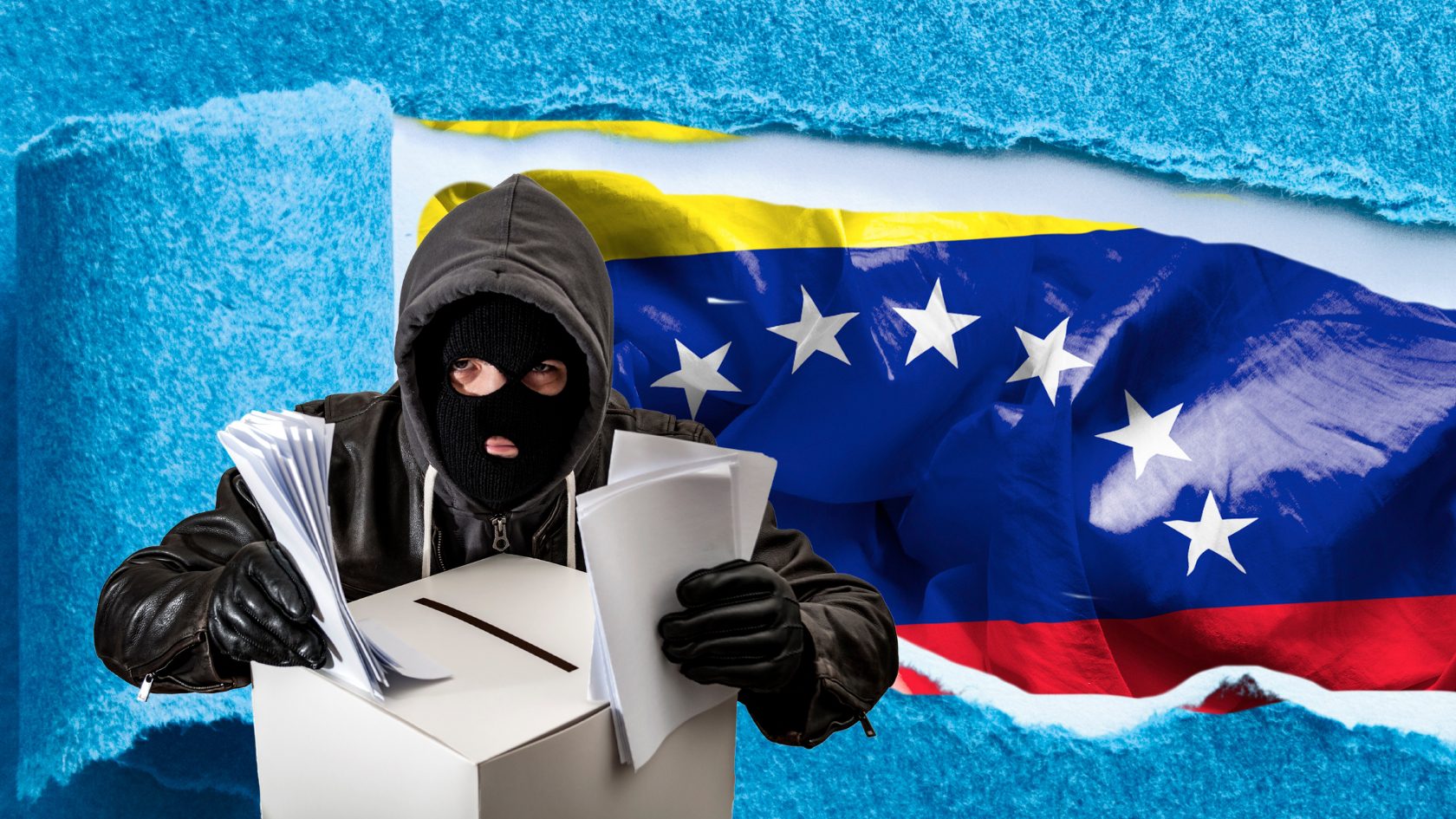
According to a report released by the Organization of American States (OAS) the Department of Electoral Cooperation and Observation (DECO) stated that the outcome of the Venezuelan presidential elections conducted on July 28 2024 is not acceptable. The report, directed to OAS Secretary General Luis Almagro, details irregularities and structural problems that affected the voting process casting doubt on the credibility of the elections.
Election Results and Immediate Reactions
The National Electoral Council (CNE) declared Nicolás Maduro as the winner of the election stating that he secured 51.2% of the votes while his main rival, Edmundo González received 44.2%. However according to the OAS report there are differences between these official figures and independent evaluations such as exit polls and citizen led verifications that showed a clear advantage for González.
The CNEs announcement was made than six hours after the polling stations closed without providing a detailed breakdown of the results or granting access, to official tally sheets. The report criticized the CNE for labeling the results as “irreversible” despite mathematical errors and a lack of transparency.
Systematic Intimidation and Repression
The recent report from the Organization of American States (OAS) reveals a scheme orchestrated by the Maduro government to disrupt the electoral process by using tactics like fearmongering, political oppression and disqualifying opposition contenders. Of concern is the case of María Corina Machado, a prominent opposition leader who was barred from participating despite winning in the primary elections, a move widely perceived as politically motivated.
Leading up to the elections there were than 135 arbitrary arrests documented in the report, with many of them targeting individuals affiliated with the opposition. The air was thick with apprehension marked by instances of violence enforced disappearances and harassment directed at supporters of opposing parties. On election day itself there were reports of intimidation incidents occurring, such as sightings of government factions, near polling places.
Lack of Transparency and Observational Access
The OAS report underscores the importance of transparency in elections pointing out that the CNE hindered both international observers from effectively monitoring the electoral procedures. While a few civil society organizations were granted observer status by the CNE access was denied to electoral observation missions such as the European Union and the Carter Center.
Moreover the report highlights that the CNE refused entry to opposition witnesses at polling stations contributing to a decline in trust in the election process. Despite these obstacles local observers noted that opposition witnesses were present, in 90% of polling stations.
Electoral Manipulation and Clientelism
The report details how the Maduro administration used government resources to gain an edge in elections, such as offering aid in return for political backing. This tactic along with the absence of rules on campaign funding resulted in an unfair advantage for the ruling party.
Furthermore the OAS report raised concerns about the lack of autonomy within the CNE highlighting that its members have ties, to the Maduro government. This situation undermined the credibility of the electoral commission. Cast doubts on its capacity to oversee impartial and transparent elections.
Call for Accountability
Based on the evidence of irregularities the OAS has determined that the official outcomes of the Venezuelan presidential elections lack credibility and should not be recognized as reflective of democratic principles. The report emphasizes the need for transparency in disclosing voting records and urges global accountability measures against the actions of the Maduro government.
Amid protests in Venezuela following the election outcome the OAS findings underscore the ongoing struggle for democracy, within the nation. The Venezuelan populace, who displayed a dedication to exercising their democratic freedoms now confront an uncertain future as governmental authority grows stronger and dissent is suppressed.
-
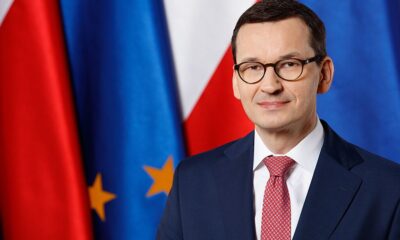
 Politics3 days ago
Politics3 days agoPoland’s Former Prime Minister Mateusz Morawiecki Eyes Leadership of European Conservatives and Reformists
-
EU & the World3 days ago
Mike Lynch Yacht Update: Fifth Body Recovered Off Coast of Sicily
-
Travel4 days ago
New Brussels to Venice night train: The 9 cities en route, what it will cost and how to book
-

 EU & the World3 days ago
EU & the World3 days agoAshanti & Nelly Welcome First Child Together & Reveal Baby Boy’s Name
-

 EU & the World3 days ago
EU & the World3 days agoDoes Travis Kelce Appear in Swift’s ‘I Can Do It With a Broken Heart’ Music Video?
-
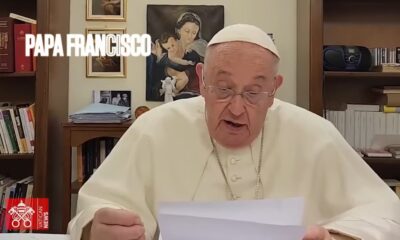
 Health & Society3 days ago
Health & Society3 days agoPope Francis calls on religions to unite to reduce demand for drugs
-
Travel5 days ago
Southern European tourists flock to Denmark to escape the heat
-

 Sports3 days ago
Sports3 days agoAtalanta: PSG-Lookman, there is news








